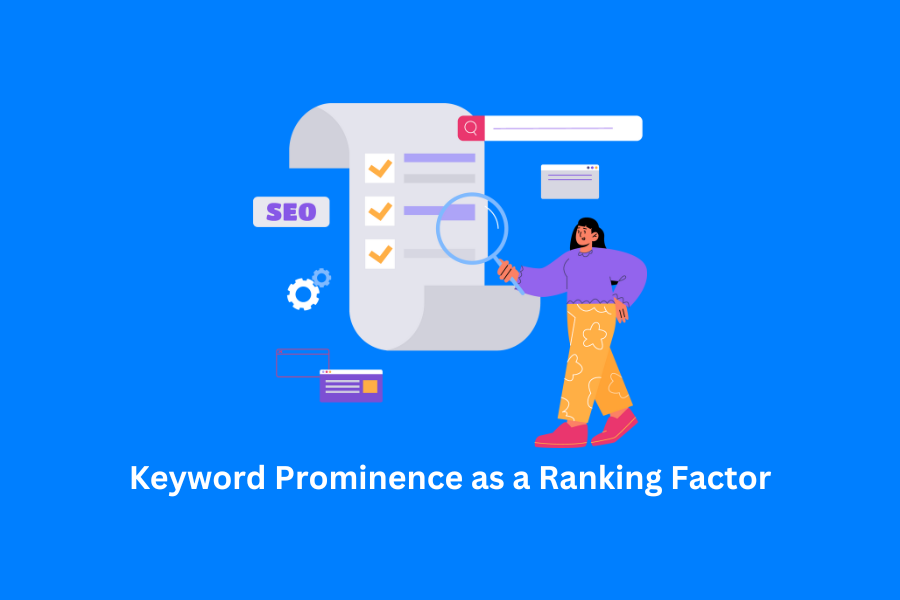Keywords are the backbone of SEO success. To rank higher in search engine results pages (SERPs) and draw the right audience, mastering keyword research and optimization is essential. This guide takes you through every step needed to dominate any keyword, covering SEO fundamentals, keyword research tools, competitor analysis, and crafting a keyword-driven content strategy. Let’s dive in and unlock your website’s full potential by dominating keywords in your niche.
Building a Strong SEO Foundation
What is SEO?
Search Engine Optimization (SEO) is the practice of improving your website’s visibility in search engines like Google, Bing, or DuckDuckGo. The goal is straightforward: to rank higher on SERPs, enabling more people to discover your content, products, or services. Higher visibility translates into more organic traffic, increased engagement, and, ultimately, more conversions.
However, SEO is not just about keyword-stuffing. It’s a blend of on-page optimization, off-page strategies like link building, and technical enhancements that ensure your site runs smoothly and meets search engine criteria. At the core of these strategies is keyword research, which ensures you target the right terms that resonate with your audience.
The Significance of Keyword Research
Keywords serve as the bridge between what users are searching for and what your website offers. If you don’t select the right keywords, your site may fail to attract the visitors you need. Proper keyword research helps you identify the terms your audience is actively searching for, ensuring your site appears in relevant search results.
By targeting the right keywords, you guide search engines to show your site when users search for those terms, bringing in targeted traffic—people who are already looking for what you offer.
Uncovering the Right Keywords
Finding Keywords: A Research Process
The first step in dominating keywords is brainstorming. Start with terms related to your niche. If you’re in logistics, for example, brainstorm keywords such as:
- Logistics Keywords: “freight solutions,” “supply chain management,” “logistics software”
- Stock Market Keywords: “trading tips,” “share prices,” “stock analysis”
- Interior Design Keywords: “modern home decor,” “luxury interior design,” “small space solutions”
Once you have a list, refine it using keyword research tools like SEMrush, Ahrefs, SE Ranking, and Mangools. These tools provide valuable data like search volume, keyword difficulty, and competition. They allow you to filter out low-value keywords and focus on high-opportunity terms.
Competitor Analysis: Learning from the Best
Another way to find valuable keywords is through competitor analysis. By examining the keywords your competitors rank for, you can identify terms that are worth targeting. Use tools like SEMrush or Ahrefs to see which keywords drive traffic to their sites and which content strategies they employ. Competitor analysis gives you a clear path to outperform them by using better-optimized content and targeting overlooked keywords.
Organizing Your Keywords: Keyword & URL Mapping
Keyword Mapping
Once you’ve gathered your list of relevant keywords, it’s time to map them to specific pages on your website. Keyword mapping ensures that each page targets a unique set of keywords, helping search engines understand the purpose of each page. For example, if you run a logistics website:
- Map “freight solutions” to your page on transportation services.
- Map “supply chain management” to a blog post on optimizing supply chains.
This structure prevents keyword cannibalization, where multiple pages compete for the same keyword, diluting your SEO efforts.
URL Mapping
In addition to keyword mapping, ensure that your URLs are descriptive and include your target keywords. A clean, keyword-rich URL helps both search engines and users understand the topic of your page. Instead of a generic URL like www.yoursite.com/page123, opt for something like www.yoursite.com/logistics-freight-services to improve both SEO and user experience.
Why Keyword Research Matters: Understanding Search Intent
Not all searches are created equal. Different types of queries reflect different user intents, and understanding these can help you create the right content. Search intent generally falls into these categories:

- Informational: Users seeking general information (e.g., “What is supply chain management?”)
- Commercial: Users comparing products or services (e.g., “Best logistics software for small businesses”)
- Transactional: Users ready to make a purchase or take action (e.g., “Buy freight management software”)
- Navigational: Users searching for a specific brand or site (e.g., “FedEx tracking”)
- Local: Users searching for services nearby (e.g., “logistics company near me”)
By aligning your keywords with the user’s intent, you’ll rank better and provide a superior user experience, which Google and other search engines highly prioritize.
Analyzing Your Audience for Better Keyword Targeting
To dominate keywords, you must know your audience. Who are they? What are their needs? What challenges are they trying to solve? Tools like Google Analytics and social media insights can help you understand your audience’s demographics, interests, and online behaviors. This knowledge allows you to refine your keyword strategy to align with the search terms your target audience uses most.
Crafting a Keyword-Driven Strategy
Developing a Content Strategy Based on Keyword & URL Mapping
After mapping your keywords, the next step is to create a content strategy. Your content strategy should revolve around these mapped keywords and the pages they’re assigned to. For instance, plan blog posts, landing pages, and product descriptions around your target keywords.
Ensure each piece of content aligns with the search intent behind the keyword. For example, if targeting a transactional keyword, the page should include a clear call-to-action (CTA) designed to convert visitors into customers.
Analyzing SERP Features
Google’s SERP has evolved with features like:
- Featured snippets
- People Also Ask boxes
- Knowledge panels
- Video results
Ranking for these features, particularly featured snippets, can drive significant traffic. To capture these spots, optimize your content with concise answers to frequently asked questions, use structured data (schema markup), and ensure your content is high-quality and engaging.
Expanding Your Reach Beyond Google
Optimizing for Other Search Engines
Although Google dominates the search engine landscape, don’t overlook alternatives like Bing, Yahoo, or DuckDuckGo. Each has its own unique algorithm, and optimizing for multiple platforms increases your overall reach. For example, Bing emphasizes social signals and local directories more than Google does, while DuckDuckGo values privacy-centric content. Tailor your approach to these platforms to expand your audience.
Conclusion
Keyword research and optimization are the bedrock of any successful SEO strategy. By understanding search intent, mapping keywords effectively, and leveraging competitor insights, you can dominate any keyword in your industry. With a well-executed strategy, your site will rise in the rankings, driving more traffic and converting more visitors into customers.









